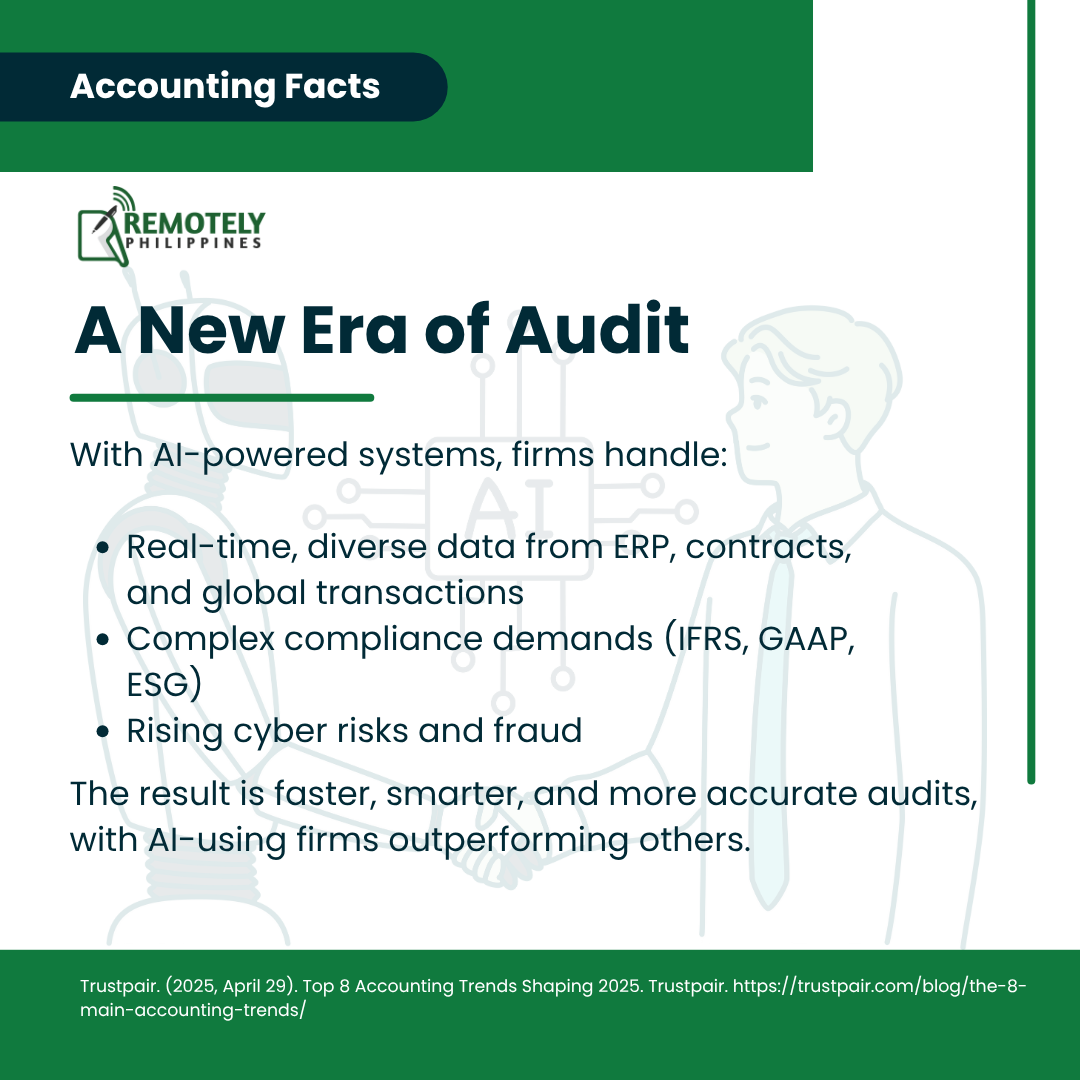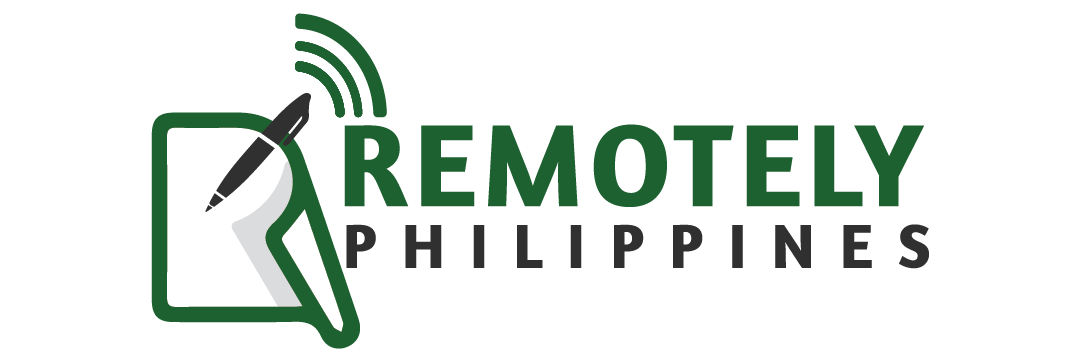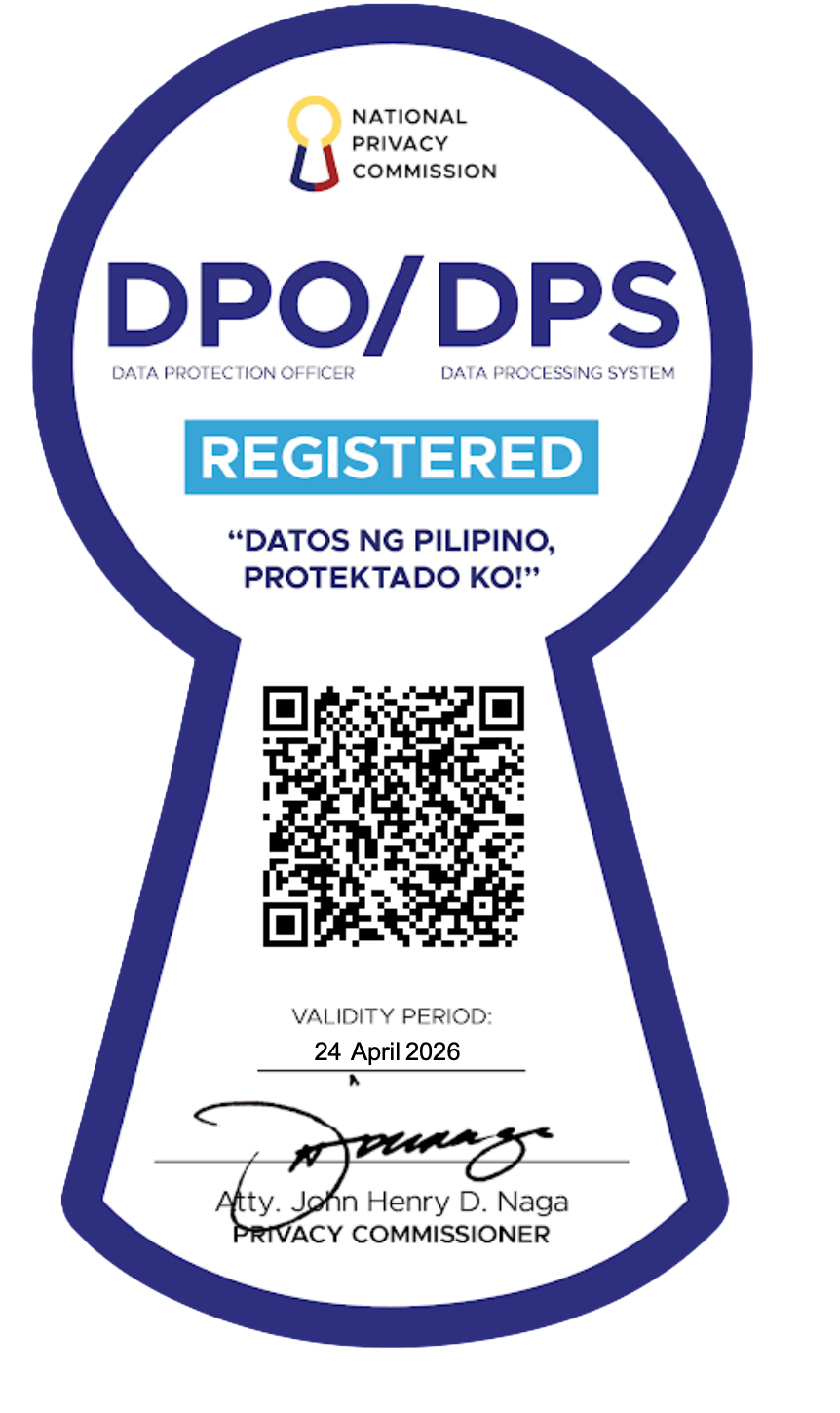Are your audit practices keeping pace with the rise of AI and intelligent automation in 2025?
Financial audits are undergoing a profound transformation. What used to be a structured, periodic activity has become something far more dynamic, thanks to the rapid evolution of artificial intelligence (AI).
In 2025, businesses are increasingly embracing full-data audits, real-time monitoring, and predictive analytics, all of which are driven by intelligent automation. This isn't just a shift in tools. It's a shift in mindset. Auditing is no longer just about compliance—it’s about uncovering risks early, supporting strategic decisions, and building investor trust through transparency.
Let’s explore how AI is changing the audit landscape, why it matters more than ever in 2025, and how your organization can stay ahead.
Key Takeaways
- In 2025, AI in financial audits is shifting the industry from manual, reactive processes to real-time, proactive oversight.
- Intelligent automation helps identify fraud, improve compliance, and deliver deeper insights with less manual effort.
- Auditors are evolving into strategic advisors, leveraging data and technology to influence business decisions.
- Businesses benefit from faster reporting, better risk visibility, and scalable audit systems.
- Successful adoption requires investment in systems, skills, and culture—not just software.
A New Era of Audit: Why AI Has Become Essential
For years, audit professionals were limited by the volume of data they could reasonably review. Even with the most skilled teams, traditional audits required sampling, manual testing, and retrospective analysis. But that approach no longer aligns with today’s pace of business.
In 2025, audit data is abundant, real-time, and diverse. You have structured inputs from your ERP, unstructured data in emails and contracts, and transactions moving across borders and platforms. Keeping up without AI? Nearly impossible.
What’s fueling this shift?

For one, regulations are becoming more complex. Audit teams are expected to verify compliance across overlapping standards—from IFRS and GAAP to ESG disclosures. At the same time, cyber risks and digital fraud are increasing.
AI offers a way to meet these demands with precision and speed. Firms using AI-powered audit systems are no longer just keeping up—they’re outperforming.
From Retrospective to Real-Time: Audits Without the Wait
Traditionally, audit reports would land on the CEO’s desk weeks—or months—after year-end. Today, with intelligent automation, finance leaders can monitor the health of their financial systems daily. This shift toward continuous auditing is one of the most impactful changes we’re seeing in 2025.
Automation tools now analyze transactions as they occur. When something unusual happens, a duplicate vendor, an invoice just under the approval limit, or a breach in payment thresholds—AI flags it in real time. This enables faster response, often within hours, depending on the company’s internal controls.
In other words, it means action can be taken within hours, not months after an annual review. Therefore, this shift to AI doesn’t just improve accuracy. It also improves trust. Investors and stakeholders want assurance that companies aren’t just compliant—they’re proactive. Real-time auditing makes that possible.
How AI Enhances Audit Quality
AI isn’t just about speed; it’s about depth. Traditional audits were constrained to samples. AI can review entire datasets, provided systems have been integrated and data is accessible. Let’s take fraud detection, for instance.
In 2025, machine learning models trained on historical fraud patterns can identify hidden risks by analyzing:
- User behavior (e.g., unusual login times)
- Vendor inconsistencies
- Approval chain anomalies
These algorithms don't replace human insight, but they act as a powerful second set of eyes. They don’t fatigue. They don’t miss entries due to workload. And they improve over time as they learn from more data. But fraud isn’t the only application.
AI also enhances routine audit processes. Natural language processing (NLP) can now scan hundreds of contracts to highlight missing clauses, flag changes from prior versions, or compare terms against corporate policy. What once took hours now takes minutes—with less risk of human error.
Reimagining the Auditor’s Role in 2025
It is a common fear that AI might replace auditors. However, the reality appears to be quite the opposite. AI is making auditors more relevant, not less. In this new model, technology does the heavy lifting—processing data, detecting anomalies, and preparing visual dashboards.
Auditors then interpret those results, provide context, and guide organizations on what the data means.

This evolution requires a different skill set. Today’s auditors must be part accountant, part analyst, part advisor. They need to understand not just the numbers, but the tools generating those numbers.
As a result, audit firms and internal audit teams alike are investing in upskilling. Certifications in data analytics, training in AI tools, and cross-functional collaboration are becoming part of the auditor’s toolkit.
What Businesses Are Gaining from AI-Driven Audits
Businesses adopting AI in their audits aren’t just getting cleaner books—they’re making smarter decisions.
They’re also gaining:
- Faster reporting cycles, which improve responsiveness to board and investor queries
- Improved regulatory compliance, especially in industries with evolving disclosure requirements
- Cost savings, as automation reduces labor-intensive tasks like reconciliations and invoice validation
- Stronger fraud defense, with intelligent alerts and pattern recognition
- Scalability, enabling growing companies to expand without overburdening their audit functions
One of the biggest gains, however, is insight. AI-powered audits don’t just tell you where you’ve been—they help you see where you’re headed. From identifying wasteful spending patterns to forecasting cash flow risks, the audit function is becoming a source of business intelligence.
Navigating the Challenges
Of course, this transformation doesn’t come without friction. While AI’s benefits are clear, implementation requires forethought and planning. Many companies still struggle with:
- Poor data quality: If your systems are disjointed or your data isn’t clean, AI outputs won’t be reliable.
- Technology integration: AI tools must work across your ERP, CRM, and accounting software. Fragmented systems can slow progress.
- Bias and transparency: AI models are only as fair as the data they’re trained on, though modern audit teams can implement bias mitigation techniques through rigorous validation. Auditors must actively validate and monitor algorithms to ensure ethical outcomes.
- Internal resistance: Like any major change, AI adoption can trigger skepticism or fear. Leadership must guide teams through the shift, emphasizing partnership—not replacement.
Overcoming these barriers isn’t about one big leap. It’s about starting with small wins—automating a single workflow, testing a pilot tool, or introducing analytics training and building from there.
List of Services
-
Can AI completely replace the audit function?List Item 1
AI supports and enhances audit functions, but human expertise is still needed for interpretation, judgment, and ethical oversight.
-
What’s the difference between AI and automation in auditing?List Item 2
Automation handles repetitive tasks (e.g., reconciling entries), while AI adds intelligence—like spotting fraud patterns or assessing risk based on behavioral data.
-
Are AI audits only for large enterprises?List Item 3
In 2025, scalable AI tools are accessible to mid-sized firms and even SMEs. Many starts with one process—like invoice scanning or vendor matching.
-
What risks come with AI in auditing?List Item 4
Key risks include poor data quality, over-reliance on tools, algorithmic bias, and lack of human oversight. These risks are manageable with proper design and training.
-
How should we prepare our audit team for this shift?
Begin with digital literacy and data analytics training. Pair tech adoption with mentoring, cross-functional projects, and clear communication about evolving roles.
Final Thoughts: The Time to Act Is Now
AI is no longer a futuristic idea for financial audits—it’s today’s competitive advantage. In 2025, businesses that continue to rely solely on traditional audit methods risk being slower, less informed, and more vulnerable to risk. But those who embrace intelligent automation are:
- Detecting issues earlier
- Delivering insights faster; and
- Positioning audit as a strategic pillar of business growth
The shift is already underway, and tools are available. These opportunities are real. At Remotely Philippines, we support businesses and firms navigating the future of finance. Our remote teams are trained in AI-enabled tools, audit best practices, and strategic finance support—so you don’t just keep up, you move ahead.
Let’s talk about how we can strengthen your audit processes with the right people and tools.
Schedule a meeting now and begin our partnership.
Sign up for our newsletter
Get regular curated content on management, outsourcing, and everything you need to know to stay ahead of the curve.









